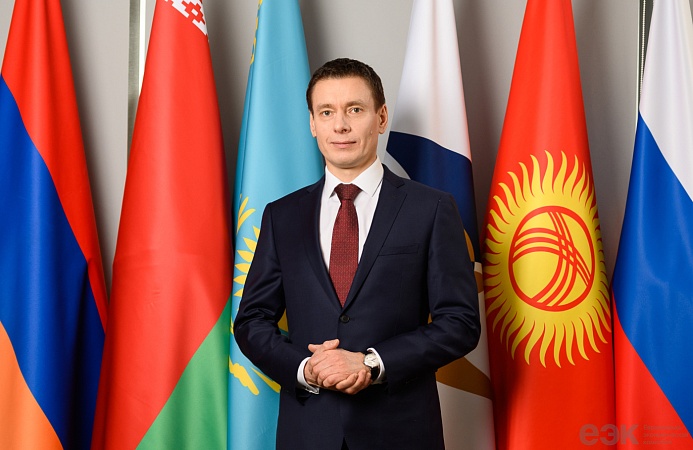Earlier, the importance of digitizing all possible sectors of the economy was repeatedly mentioned by the leaders of the «five» countries. For example, only at the June meeting of the Supreme Eurasian Economic Council and the timed Eurasian Economic Forum in Minsk, Nikol Pashinyan, Prime Minister of the Republic of Armenia, emphasized that he «considers digital transformation as a tool for removing barriers and increasing transparency in mutual trade». In his turn, Alexander Lukashenko, President of the Republic of Belarus, noted that «integrated Eurasian transport and logistics corridors should become smart, multimodal eco-friendly arteries with a single digital platform of administration».
«In general, digitalization and artificial intelligence are included in the list of priorities of our national policy. E-commerce, digital document flow, automated control and logistics systems have already become integral elements of the EAEU countries’ economies», stated Kassym-Jomart Tokayev, President of the Republic of Kazakhstan.
In this context, the EEC’s activities in terms of digitizing freight rail transportation serve as a living example of relevant practical work, which results in both simplified procedures and cost savings for businesses, as well as maximum acceleration of the movement of goods.
«By 2024, the EAEU Member States have ensured the transition to digital transport documents for rail transportation between the Republic of Belarus, the Republic of Kazakhstan and the Russian Federation,» Andrey Slepnev noted.
In particular, the level of electronic data exchange between JSC Russian Railways and the Belarusian Railway State Association has reached at least 90% over the past few years, and this level has exceeded 80% between Kazakhstan’s JSC NC KTZh and the rail carriers of Russia and Kyrgyzstan.
By the end of 2024, the transportation volume of the Russian Federation using electronic documents amounted to 90% with the Republic of Belarus and 79% with the Republic of Kazakhstan.
It is also important to note the work being done on transiting to electronic shipping documents. For example, Russian Railways JSC has implemented the possibility of accepting electronic shipping documents signed with an electronic signature from a consignor/freight forwarder into its information systems and submitting them to customs authorities and transmitting them to the Belarusian Railway State Association for customs operations upon completion of the customs procedure. This technology is used between Russia and Belarus for transportation under the Intertran project.
Interstate testing is currently underway to put into effect a common customs process «ensuring the exchange of electronic documents and/or information between the customs authorities of the EAEU Member States in the process of controlling the transportation of goods under the customs procedure of customs transit».
«In addition to digitizing rail freight transportation between the EAEU Member States, active work is underway with the PRC. The volume of correct electronic communications between rail carriers in Russia and China amounted to 90% by the end of 2024. The indicator of completeness and quality of data subject to electronic exchange reached 80-90% between Kazakh and Chinese railroads,» the EEC Minister in charge of Trade continued.
He stressed that an important milestone of cooperation with the PRC in terms of digitizing freight transportation was the signing in December 2024 of the Agreement on interaction between certification centers of railway carriers of Russia and China for the issuance of certificates for transboundary electronic document flow. This document will ensure the use of electronic signatures between the railways of the two countries.
At the end of December 2024, test paperless transportation was launched between Russian Railways JSC and China Railways SC through the Zabaikalsk-Manchuria border checkpoint in export-import traffic.
In 2025, it is planned to gradually expand the geography of transportation that will be formalized by electronic consignment note.
The importance of the EEC’s work on digitizing transport corridors is also underscored by the words of the Presidents of the Observer Countries at the EAEU at the June summit in Minsk. Masoud Pezeshkian, President of Iran, noted the need to create «infrastructure to strengthen cooperation in digital technologies and facilitate information exchange and new types of trade». Shavkat Mirziyoyev, President of the Republic of Uzbekistan, dwelt separately on the country’s active participation «in important EAEU initiatives, including such projects and programs as the Eurasian Agro-Express, development of e-commerce, digitalization of freight transportation and the climate agenda».




